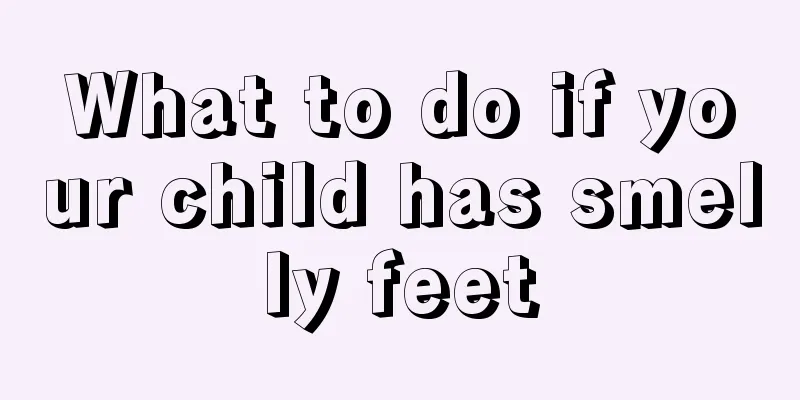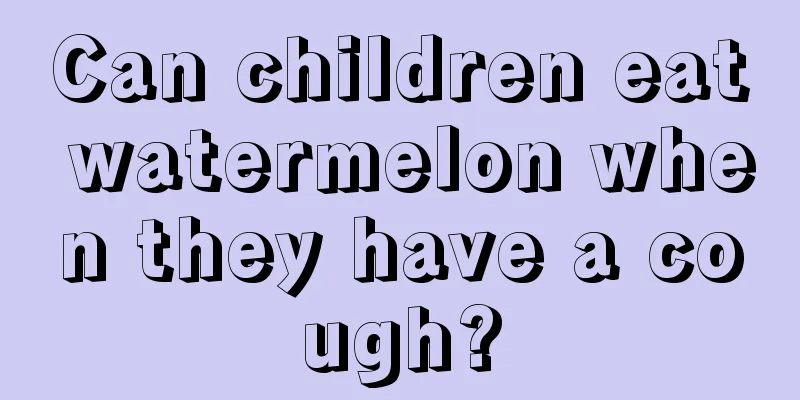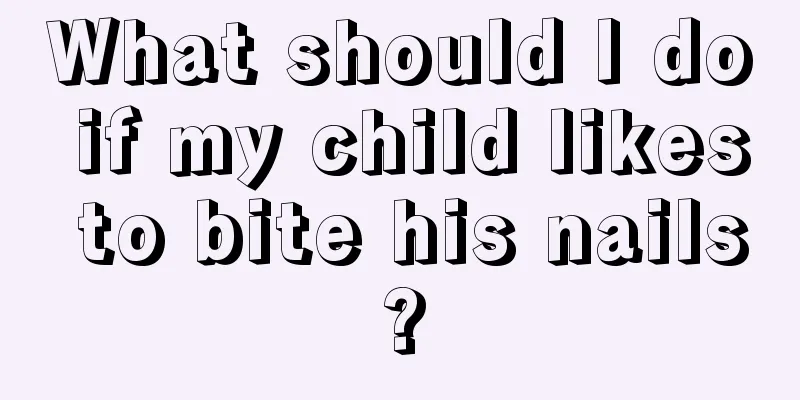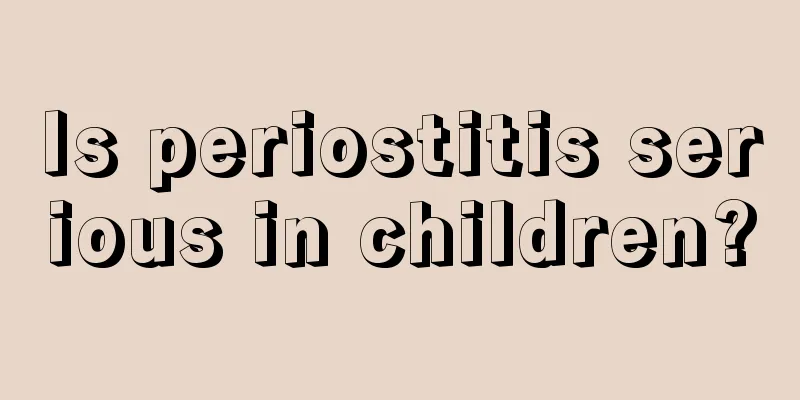What to do if your child has smelly feet

|
It is very common for many children to have smelly feet, and there are often many reasons for this. However, no matter what the cause of children's smelly feet is, it usually has a certain impact on their own or their family's normal life. So, what should we do if children have smelly feet? This is a thought-provoking question because it involves the health of the child and the normal life of the family. In fact, most families may not take children's smelly feet seriously. Some parents may even think that it is normal for children to have smelly feet, so they often ignore it. However, the facts have proved that these people's ideas are wrong. Children's smelly feet need timely treatment. So, let’s talk about the treatment methods for children’s foot odor. Self-treatment precautions: 1. Pay attention to cleanliness, keep your skin dry, keep your feet clean, wash several times a day, and change socks frequently. 2. It is not advisable to wear non-breathable shoes such as sports shoes and hiking shoes to avoid excessive foot sweating and aggravated foot odor. 3. Actively eliminate the inducing factors, such as foot sweat, athlete's foot, etc. 4. Do not eat foods that can easily cause sweating, such as hot peppers, raw onions, raw garlic, etc. 5. Keep a calm mood. Excitement can easily induce excessive sweating and aggravate foot odor. 6. This disease is mainly treated with external treatment. Self-therapy: 1. Put your feet in 50-60℃ hot water for several times, 15 minutes each time, 1-2 times a day. 2. Use a heavy object to flatten the loofah and make it into insoles to remove foot odor caused by foot sweat. 3. Grind 15 grams of Pueraria root into fine powder, add 15 grams of white wine and appropriate amount of water, boil it and wash your feet with it. Do this once a day. After one week, the foot odor caused by foot sweat can be removed. 4. When washing your feet, add 10-15 ml of rice vinegar to the water, mix well, soak your feet for about 15 minutes, once a day for 3-5 days, and the foot odor will disappear. 5. When washing your feet, add 50 grams of alum to hot water and soak for about 10 minutes to remove foot odor. Medically, athlete's foot is usually divided into three types: erosive, blister, and keratotic. 1. Erosive type: often occurs between the third and fourth, and between the fourth and fifth toes. Initially, the spaces between the toes are damp, whitish or small blisters appear. After drying and scaling, the dandruff reveals a moist, flushed eroded surface that is extremely itchy and prone to secondary infection. 2. Blister type: often occurs on the edge of the foot. Initially, they appear as small blisters with thick and full walls. Some of them may merge into large blisters. The blister fluid is transparent and there is no redness around them. The patient feels extremely itchy, and scratching often leads to secondary infection, such as erysipelas and lymphangitis. 3. Keratinic type: often occurs on the heels. The main symptoms are thick and dry skin, keratinization and desquamation, itching, and easy cracking. This type of disease has no blisters or suppuration, and the course of the disease is slow and does not heal for many years. From the above, we can see that there are generally many treatments for children's foot odor. In fact, the treatment of children's foot odor requires distinguishing the specific types and then prescribing the right medicine, because such treatment effect is the best. Therefore, for our parents, it is important to note that when you find that your children have smelly feet, it is best to go to the hospital for examination in time.
|
<<: What to do if your child has a bad spleen and stomach
>>: What to do if your child has excessive liver fire
Recommend
How many months should a male baby be weaned?
Nowadays, many babies have a very difficult time ...
What are the causes of drool rash in children?
Nowadays, most families have a baby. The whole fa...
Treatment of anemia in one month old baby
One-month-old babies always have anemia. This sym...
Reasons why children often daydream
Parents may occasionally find that their children...
What should I do if my eight-month-old baby has a fever of 39 degrees?
An eight-month-old baby has weak body resistance ...
Seven-month-old baby has phlegm sound when breathing
If a seven-month-old baby has phlegm sounds when ...
Some issues about adenoids hypertrophy in children
Glandular hypertrophy in children is a common dis...
Are children's vision correctors useful?
Children's vision correctors have certain the...
What should I do if my baby doesn’t eat in summer?
Many parents are very distressed. Every time the ...
What to do if your baby has chapped lips
Due to the windy and dry weather in autumn and wi...
What happens if children eat too many eggs?
As the competitive pressure in all walks of life ...
What are the dangers of insufficient sleep in young children?
Lack of sleep in young children is a very serious...
What to do if your baby has a nosebleed in the middle of the night
A baby is the hope of a family and the apple of t...
What should children eat to nourish their brains?
Nowadays, nutrition has become a problem for many...
What to do if a baby girl has vulva itching
Generally speaking, various abnormal conditions i...









